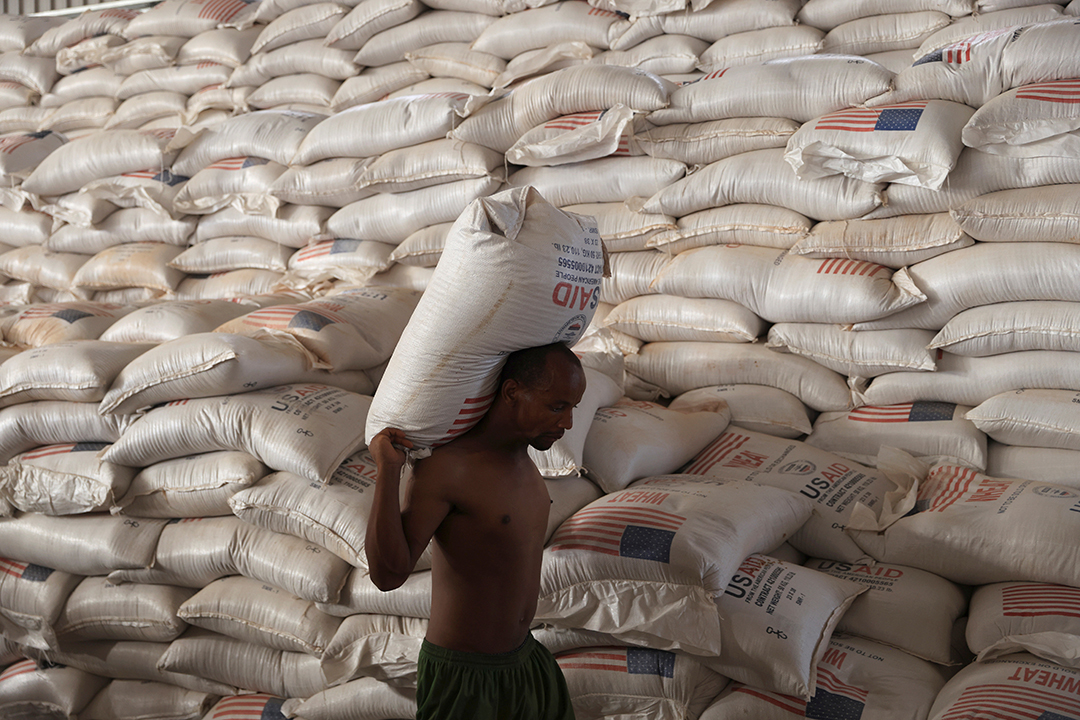ADF STAFF
After Russia invaded Ukraine in February, prices for food and other goods skyrocketed around the globe. Parts of Africa, where food insecurity already was exacerbated by COVID-19 and severe droughts, were hardest hit.
In response, the U.S. government pledged in May to provide an additional $215 million in emergency aid to Algeria, Burkina Faso, Cameroon, Kenya, Mauritania, Nigeria, Rwanda, Tanzania, Uganda and Zimbabwe.
Many African nations rely on Russia and Ukraine for wheat, fertilizer and vegetable oil imports, but the war has disrupted global markets and supply chains, causing food prices to soar.
In East Africa, one person is likely to die of hunger every 48 seconds, the Oxfam Foundation and Save the Children reported in mid-May.
“Many countries in Africa were already in a food crisis,” Lena Simet, senior researcher on poverty and inequality at Human Rights Watch, said in a statement. “Rising prices are compounding the plight of millions of people thrown into poverty by the COVID-19 pandemic, requiring urgent action by governments and the international community.”
Nigeria is the world’s fourth-largest wheat importer and receives a quarter of its imports from Russia and Ukraine, while Cameroon, Sudan, Tanzania and Uganda source more than 40% of their wheat imports from the warring countries, according to Human Rights Watch.
The United Nations World Food Programme buys half of the wheat it distributes globally from Ukraine, but Russia’s invasion has crippled supplies as prices for many products soar, including the price of fuel used to deliver food across the globe.
Almost 500,000 people in Ethiopia and Somalia are experiencing famine-like conditions, while 3.5 million Kenyans suffer from extreme hunger, Oxfam reported on May 17.
“The situation is devastating,” Jane Meriwas, director of Samburu Women Trust in Kenya, said in a report on Oxfam’s website. “Both human beings and livestock are at risk of dying; already children, pregnant mothers and elderly in some parts of Marsabit and Samburu Counties in Kenya are being reported as dying. If urgent intervention is not provided now, we are likely to witness even more death.”
Moussa Faki Mahamat, the African Union (AU) Commission chairperson, acknowledged that Russia’s invasion of Ukraine dramatically increased the continent’s food security crisis during a speech at the AU’s Executive Council meeting on May 25.
“Africa has become the collateral victim of a distant conflict, that between Russia and Ukraine,” Mahamat said. “By profoundly upsetting the fragile global geopolitical and geostrategic balance, it has also cast a harsh light on the structural fragility of our economies. The most emblematic sign of these fragilities is the food crisis following the climatic disorders, the health crisis of COVID-19, amplified today by the conflict in Ukraine.”
To mitigate the food crisis, African governments and international institutions have supported the African Development Bank Group’s $1.5 billion emergency food production facility, meant to increase essential grain production.
During a virtual meeting about the facility, Ghana’s Finance Minister Ken Ofori-Atta said the continent is experiencing its worst inflation and food crisis in two decades and urged his colleagues to adopt a new mindset to address the issues.
“We must move fast to save our people from this hunger and increased cost of living,” Ofori-Atta said in a report by Nigerian online news outlet Business Post.


Comments are closed.